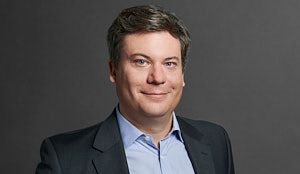UOKiK imposes record fines on companies involved in developing Nord Stream 2
The President of the Polish Office of Competition and Consumer Protection ("UOKiK") has imposed the biggest fine for gun-jumping ever by a national competition authority. The UOKiK imposed a fine of over PLN 29 billion (approx. EUR 6.5 billion) on Gazprom, and a total of over PLN 294 million (approx. EUR 65.4 million) on Engie, Uniper, OMV, Shell, and Wintershall. The UOKiK also ordered the companies to terminate the agreements concluded for financing the Nord Stream 2 gas pipeline in order to restore the market conditions that existed before the alleged concentration.
This decision is the result of the UOKiK’s long history of dealing with the companies involved in developing Nord Stream 2.
Financing agreements as a notifiable transaction
In December 2015, the UOKiK received a merger control notification filed by six companies seeking approval for the creation of a joint venture for the development, construction, management, and further exploitation of the Nord Stream 2 gas pipeline. However, when the UOKiK presented a number of objections to the potential concentration (following the opening of the Phase II investigation), the companies withdrew their notification in August 2016. According to media reports, despite the withdrawal of the notification, in early 2017 agreements for financing the construction of the pipeline were signed between Nord Stream 2 AG (the borrower) and Uniper, Engie, OMV, Shell, and Wintershall (each contributing EUR 950 million, collectively as financial investors).
As a result, in April 2017 the UOKiK launched an investigation that eventually ended with an infringement decision issued in October 2020 in which the authority argued that the conclusion of those financing agreements amounted to the establishment of a joint venture company, based on a company existing within the Gazprom capital group (Nord Stream 2 AG), and – in consequence – approval of those agreements as a notifiable transaction should have been sought from the UOKiK.
The UOKiK admits that, by concluding the financial agreements, the companies did not acquire any shares or voting rights in Nord Stream 2 AG. However, the financing agreements did lead, in the authority’s view, to a combination of “strong, joint and uniform commercial interests” of the companies. The UOKiK interprets such a situation to be de facto the same as the establishment of a joint venture company. In support of its conclusion, the UOKiK also noted that, by concluding the financial agreements, the financial investors bear the economic risk of the joint venture.
The UOKiK further argued that, by signing the financing agreements, the financial investors secured a number of rights under those agreements in relation to Nord Stream 2 AG. In its decision, the UOKiK claims that such rights would enable the investors to materially influence the business activity of Nord Stream 2 AG.
Furthermore, in an interview following the decision, the President of the UOKiK confirmed that the loan extended by the financial investors was secured with an option to convert a loan into shares in Nord Stream 2 AG.
The companies argue that equity participation in an undertaking is a prerequisite for considering a transaction to be the establishment of a joint venture company. They, therefore, argue that the conclusion of the financing agreements did not amount to a concentration under Article 13(2) of the Polish Competition and Consumer Protection Act, and therefore did not require the prior approval of the UOKiK. This is because the obligation to notify and obtain prior approval (Article 13(1) of the Act) applies only to transactions listed as concentrations in Article 13(2) of the Act.
The companies also maintain that the fact that the conclusion of the financial agreements achieved the same goal as that set out in the original merger control notification is irrelevant.
They also argue that the scope of the rights granted by Nord Stream 2 to the investors is not broader than that of typical financial agreements of a similar nature. The rights granted to the investors are intended to protect their financial exposure and emerging financial risks, and are typical rights granted by borrowers in project finance transactions of a similar scale. They also claim that those rights do not permit any interference with Nord Stream 2's operations.
With regard to the loan conversion option, the companies rightly point out that this is a form of securing the repayment of the loan and does not grant the companies any shareholdings rights.
Imposed fines and likely appeals
Given that – according to the UOKiK - the conclusion of the financing agreements for Nord Stream 2 without the UOKiK’s approval constituted a breach of the merger control rules, the UOKiK was entitled to impose fines. In particular, under Article 106(1)(3) of the Act, if undertakings perform a concentration without obtaining the UOKiK’s consent, the authority is entitled to impose a maximum fine of 10% of the turnover generated in the previous financial year.
In justification of the value of the fines imposed, the UOKiK says that the companies deliberately conducted the concentration without the consent of the UOKiK, even though they were aware of the obligation to notify any of the objections to it that the UOKiK would likely raise (since it had already done so when the initial merger control notification was submitted by the same companies).
The UOKiK also found that there were aggravating circumstances in the case (and no mitigating ones). In particular, all the companies are said to have intentionally broken the law. Furthermore, the gravity of the infringement is significant, as the alleged concentration has impacted the Polish gas market, which “is a very important sector of the economy and is particularly important, in particular from the point of view of gas end-users and the national security”.
The UOKiK imposed the maximum fine on all the companies involved in developing the Nord Stream 2 gas pipeline, arguing that such fines are necessary for the preventive, repressive, and disciplinary functions of the fines to be effective.
The companies may appeal within one month from being served with the decision. Some of them have already confirmed that they will appeal.
The public version of the decision (in Polish) was published on the UOKiK website in November.
For more information please contact Piotr Dynowski or Marcin Alberski.




